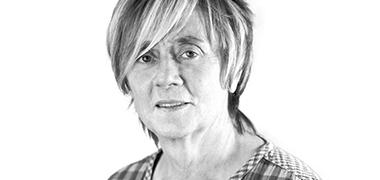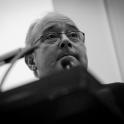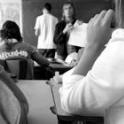We are celebrating the 10-year anniversary of Debats d’Educació by giving the educational community the opportunity to air its views

I am a professor emerita at the UAB Faculty of Education. I am doing a project for the Provincial Government of Barcelona entitled “Areas of Education Debate for Families” in several municipalities throughout the province of Barcelona. I collaborate with the media and coordinate the GRODE group project at the UAB on preventing violence in schools.
The three things I’ve learned
The Necessary Recognition for the Legitimacy of Family Knowledge and the Reasons for Their Actions
One of the ideas that must be taken into consideration is that never before has there been so much discussion regarding shortcomings or poor educational practises within families. Doubts are attributed to the parents' lack of training and ignorance and that is why it is said that they should go to "school" to learn how to be mothers and fathers when the causes are rooted in social changes. This message creates confusion, mistrust, insecurity and immobilisation as their actions are questioned. This weakness reaches the children who hear comments and generates a lack of recognition and security in them as they believe their caretakers are people "someone" believes are incompetent. So it is not odd for parents to turn to television programmes and more or less serious reading in order to find the answers to the insecurities created. When this insecurity is verbalised, their judgement is revealed to be more than enough to care for and raise their children.
Communication based on reciprocity must be established in the name of shared educational interests
Professional groups that relate with families, whether they may be a school group or other professionals, when the focus of the relationship is on education should foster communication based on reciprocity and promoting positive attitudes. Leadership in these relationships must be professional when talking about people who have specific knowledge and certain objectives to reach. To this end, interests must be found that may be shared with certain symmetry such as the development processes of children during childhood and adolescence and the socialisation process. Although it is true that there are specific implications depending on the different contexts, references may be established as regards the demands of maturity, rational learning, social skills and communication skills which are all common and essential aspects that must be shared.
Family time must be valued as a relational space that is not sequestered by school demands
Never before has so much been required of the family groups as regards specific tasks assigned by other social sectors whether the school or extra-curricular activities. It seems as though families have to continue whatever the children may be doing in other contexts. However, it is obvious that there is another situation at home that must be respected and which is of great importance. Private family time is very rich and complex. Home life (shopping, cooking, hygiene, household organisation…) is also based on meeting each family member’s needs and desires all while experiencing the dynamics of the group and the sub-groups (children, adults). This involves demand as any planning done is often overtaken by daily situations which create moods that must be managed within the context of family intimacy even though they were produced outside the family group. The emotional and relational climate is important and when adults get off work, they cannot simply act as managers but rather must act as group leaders.














 The texts published on this website are, unless otherwise indicated, covered by the Creative Commons Spain Attribution 3.0 licence. You may copy, distribute, transmit and adapt the work, provided you attribute it (authorship, journal name, publisher) in the manner specified by the author(s) or licensor(s). The full text of the licence can be consulted here:
The texts published on this website are, unless otherwise indicated, covered by the Creative Commons Spain Attribution 3.0 licence. You may copy, distribute, transmit and adapt the work, provided you attribute it (authorship, journal name, publisher) in the manner specified by the author(s) or licensor(s). The full text of the licence can be consulted here: